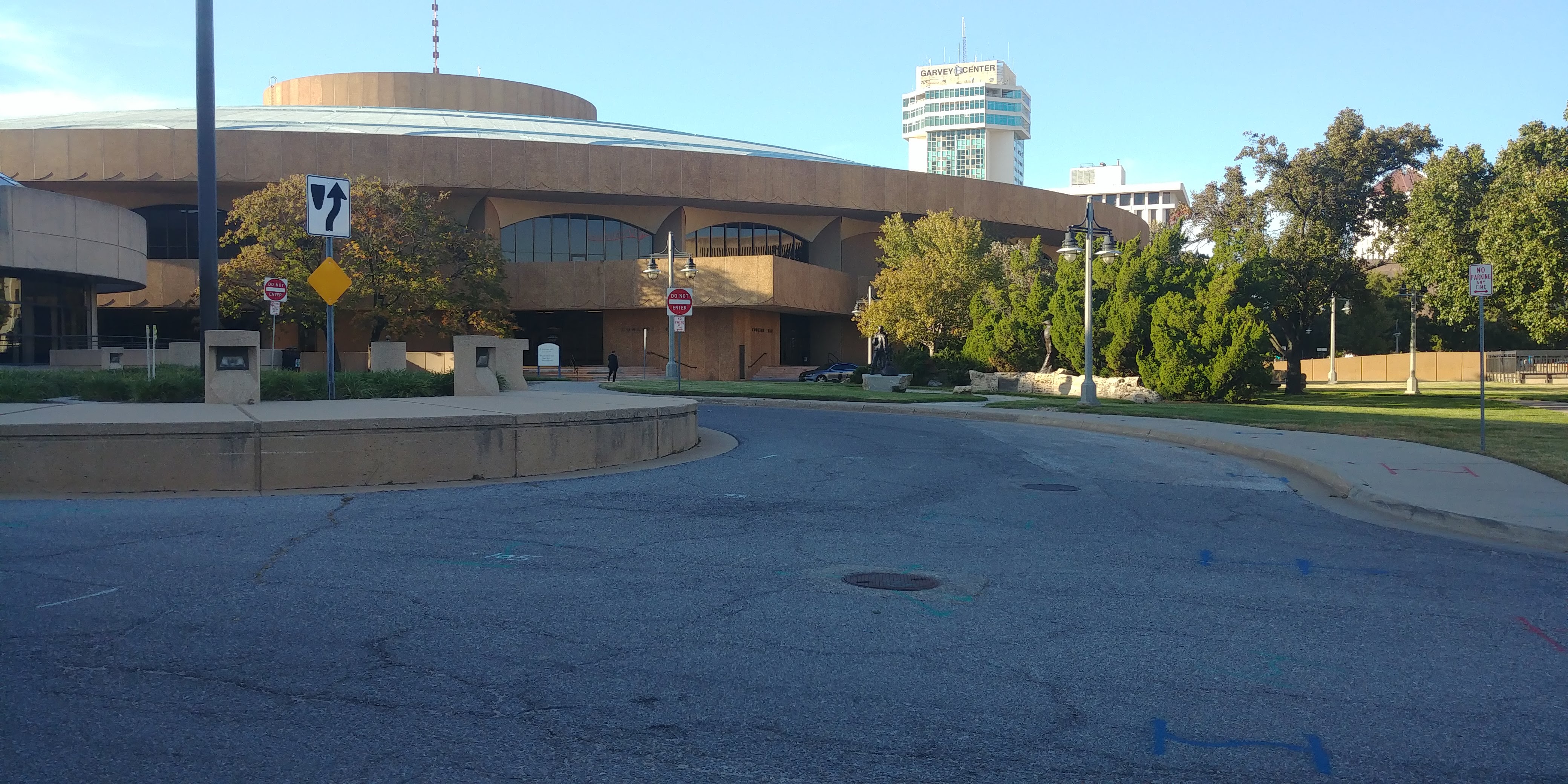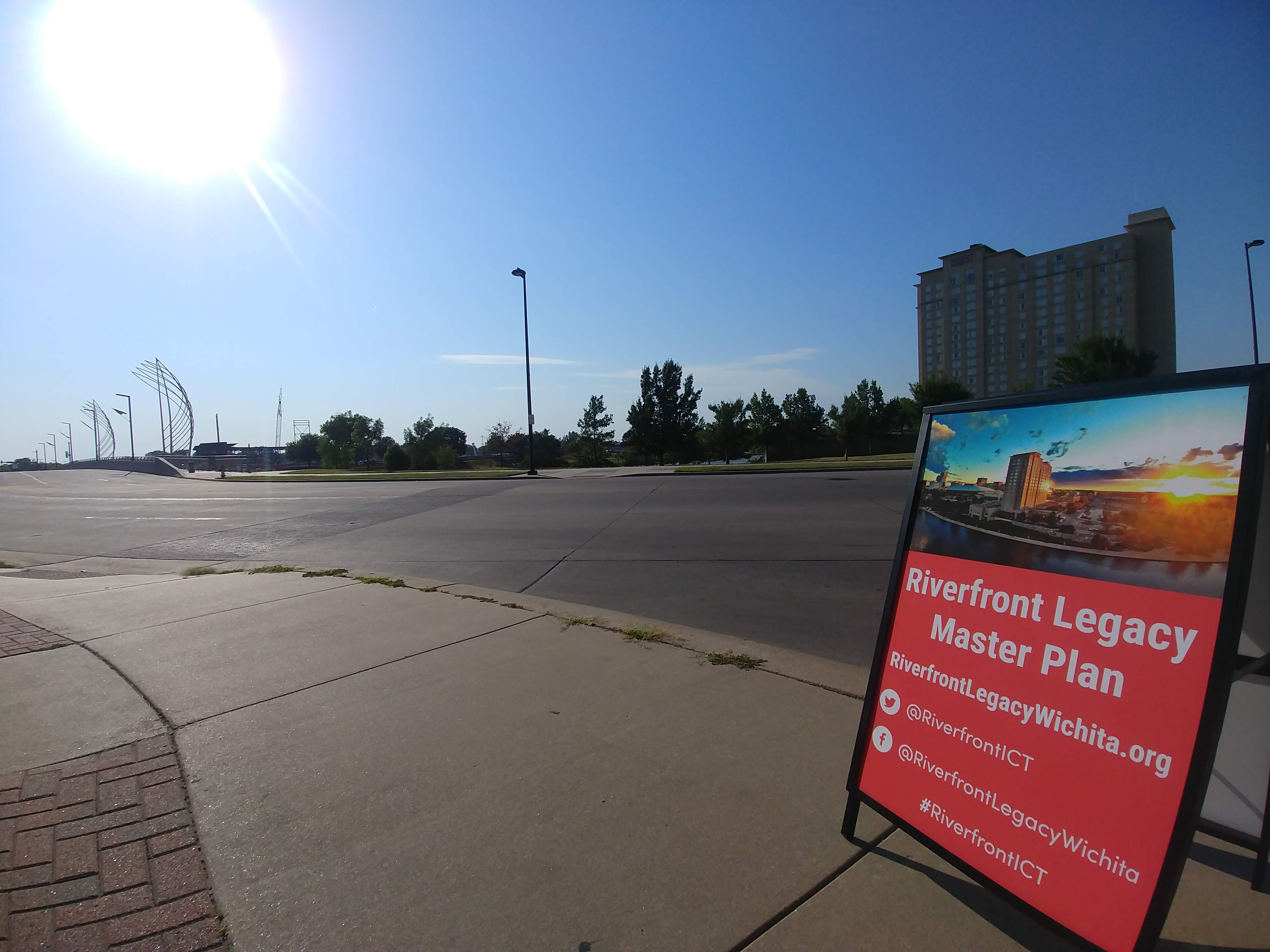The architectural firm designing the Wichita Riverfront Legacy Master Plan seems to be proposing the City of Wichita as the landlord of premium office space and apartment space, and the downtown non-profit funding most of the plan development won’t rule it out.
The information came out during the most recent presentation by the architectural firm Populous.
The slide during a section titled Planning Principles: Draft reads in part, “Create an economic engine on the site that utilizes publicly-owned real estate to support innovative and engaging public programming.” Amber Luther, the project manager for Populous while the slide was up described the publicly-owned economic engine as follows. “What we are really going to talk about in terms of the market analysis is rental apartments, office, retail, hotel, and how they can maybe be combined as a mixed-use to create that economic engine on the portion of the site,” said Luther.
The Sentinel asked the Greater Wichita Partnership, one of the groups funding the Wichita Riverfront plan, if Populus’s presentation meant the city would own the apartments and office space. GWP didn’t call back as requested but Evan Rosell, GWP Vice President of Projects, sent this email response that didn’t answer the question.
“The market analysis from RCLCO identifies what the market potential is for downtown as well as the Riverfront Legacy Master Plan Site, which includes the area bounded by Kellogg to Douglas and Main Street to the east bank of the river. The market research identifies opportunities in residential, commercial, hotel, and retail. The next step will be to explore how such uses could be integrated to derive a vibrant, market-based economic area through public and private sector investment to ensure viability for the site. A component of Populous’ and RCLCO’s work is to provide options on how the mix of uses could be implemented.”
GWP declining to clearly rule out city ownership of apartments, hotels, and office space – and being in direct competition with taxpayers in the private sector – likely means those driving the process are at least strongly considering it.
City-owned properties don’t pay sales and property tax, which allows the city to charge lower rents than private developers. According to the Populous presentation, the much-anticipated development will be focused on using public space to make the city money.
Luther notes that this is just how it is done now, “Gone are days when we could build a civic center or performing arts center or anything else and not think how we fund deferred maintenance or programming for the sight.”
The demand for apartment and hotel space as put forth by Populous is misleading. For example, noting that 1,200 residential units have been built downtown since 2010, Luther said, “Downtown is already a destination for residential. We only see that expanding and growing in the future.”
More people may be living downtown than ten years ago but nowhere near enough to create critical mass. According to the 2018 Downtown Report a little more than 2,300 live downtown. However, according to the Chung Report, the critical mass needed is at least 10,000.
During the Q&A portion, the Sentinel asked what how the project would be paid for and if a tax increase was on the table. Todd Voth, an architect with Populous said, “We are not prepared to have that conversation yet because we are in the middle of the study, but at some point, we will have that conversation with you so you can start to understand really what that means.” Voth continued, “we don’t want to defer the answer, just don’t have the answer.”




